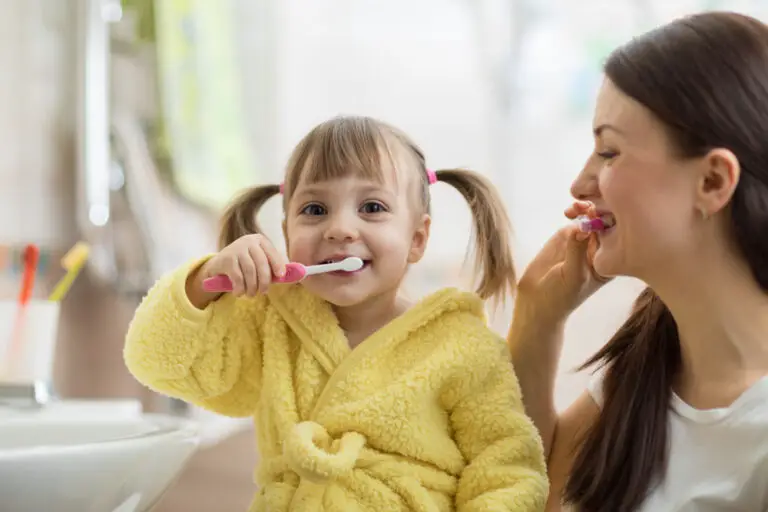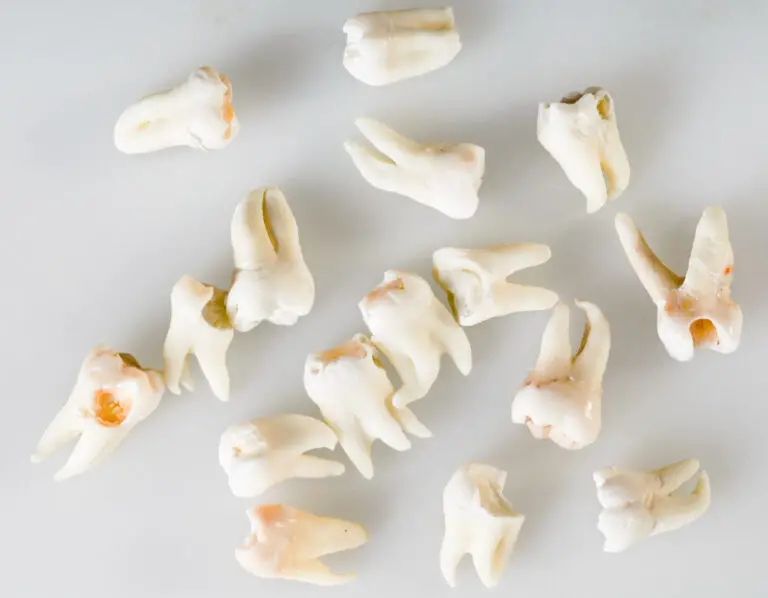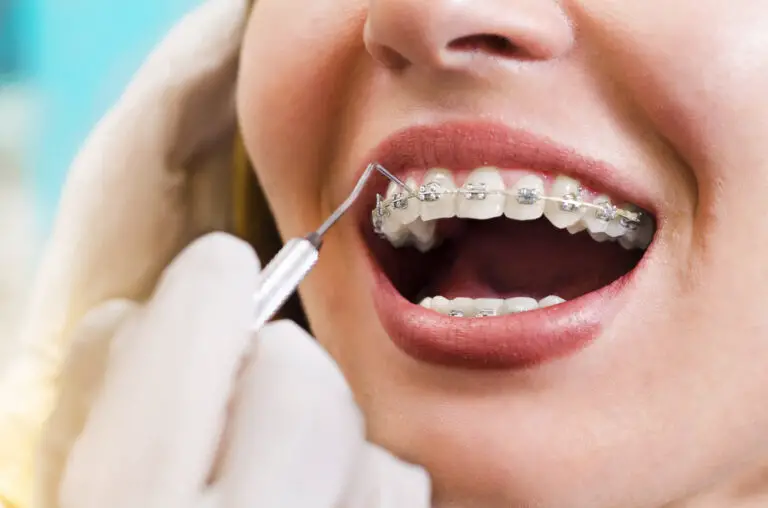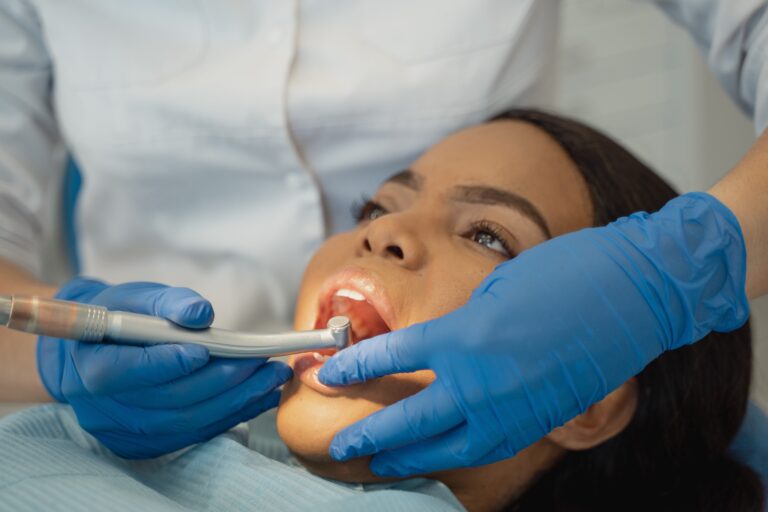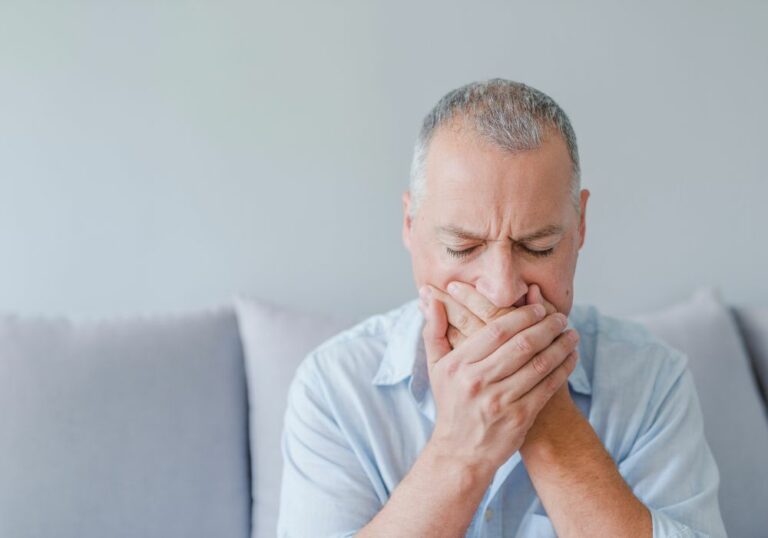Teeth grinding, also known as bruxism, involves clenching or grinding of the teeth. It’s estimated to affect 8-10% of adults on a regular basis. Bruxism often happens unconsciously during sleep, though some people grind their teeth when awake too. If left untreated, it can lead to various oral health complications. Understanding what causes bruxism and exploring management options is key to protecting your teeth.
What triggers teeth grinding?
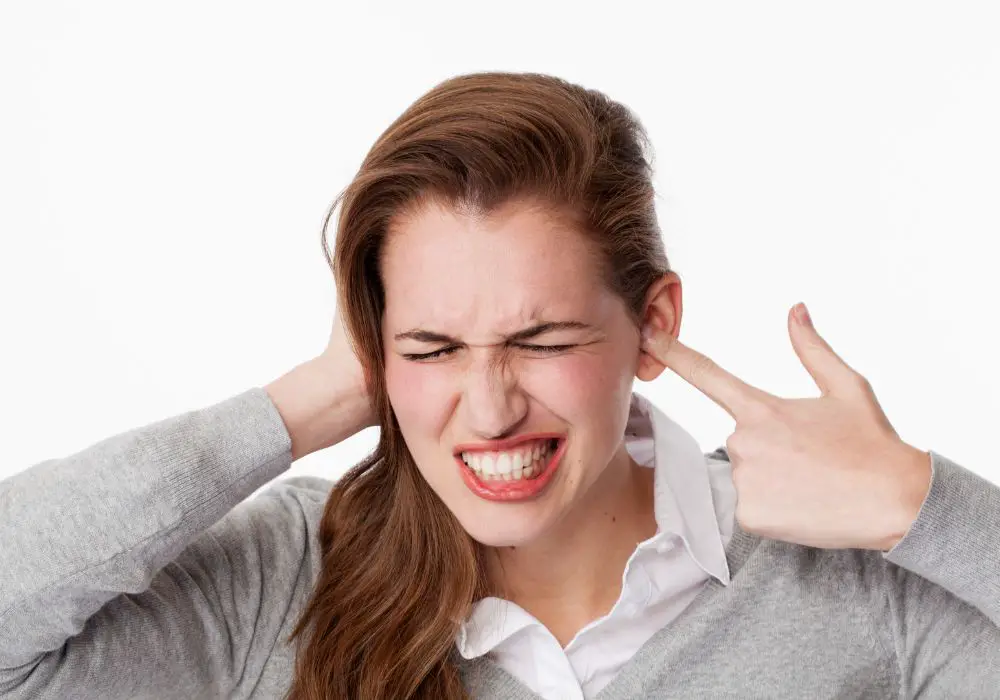
There are several contributing factors that can initiate bruxism:
Stress and anxiety
This is considered the leading cause of teeth grinding. The pressures of work, relationships, finances, and other aspects of life can manifest physically with jaw tension. Times of high stress often make bruxism worse. Even anticipation of stressful events like public speaking or important meetings can trigger teeth clenching.
Sleep disorders
Conditions like obstructive sleep apnea, which causes interrupted breathing and diminished oxygen levels during sleep, are strongly associated with bruxism. The physical arousal from airway obstruction triggers the muscles to activate, including the jaw muscles used for chewing and clenching. Teeth grinding may also occur along with other sleep disruptions like night terrors, insomnia, and restless leg syndrome.
Malocclusion and orthodontic issues
Problems with the alignment of teeth can sometimes contribute to bruxism, as people unconsciously grind their teeth in an attempt to correct bite issues. Having teeth that do not meet properly, such as underbites, overbites, and crossbites, can cause grinding and clenching motions to try to force the jaw into a more comfortable position. Missing teeth, crooked teeth, and poorly fitting dental work may also initiate bruxism.
Medications and substances
Certain medications like SSRIs, amphetamines, and sedatives have been shown to potentially worsen bruxism as a side effect. Withdrawal from some substances like alcohol, tobacco, and illicit drugs can also cause a temporary uptick in teeth grinding. Caffeine and nicotine consumption are associated with increased bruxism as well.
Genetic factors
There does seem to be a genetic component, meaning bruxism can run in families. People with a first-degree relative, like a parent or sibling, who grinds their teeth have a higher risk of developing the condition themselves. The hereditary element may predispose some to clench in response to stressors and other triggers.
What are the signs of bruxism?
Symptoms that may indicate teeth grinding include:
- Audible grinding noises during sleep, noticed by partner
- Jaw soreness or fatigue, especially in morning
- Dull tension headache upon waking up
- Neck, shoulder, and facial pain
- Earache or pain on sides of head
- Jaw joint clicking, popping, or locking
- Indentations along inside of cheek
- Tongue indentations or soreness
- Teeth that are flattened, loose, fractured, or broken
- Tooth sensitivity and increased cavities
- Damaged dental work like chipped teeth or cracked crowns
Severe bruxism can even lead to damage of the jaw joint and surrounding tissues, headaches, and bite changes. Being alert to these symptoms helps detect the condition early.
When does bruxism occur?
Teeth grinding often happens during sleep, so most people don’t realize they have a problem until signs of damage emerge. Nocturnal bruxism typically occurs during non-REM sleep phases 1 and 2, which are periods of lighter sleep. People may repetitively clench and release their jaw muscles in rhythmic episodes through the night. These episodes can last from a few seconds up to several minutes each.
Sleep bruxism affects around 13% of adults, while awake bruxism seems to be less common. Children experience teeth grinding most frequently, with some studies showing prevalence in 30-40% of kids. It often arises around age 2 as adult teeth emerge, then declines in the teens. Only about 5% continue habitual grinding into adulthood.
Those reporting awake bruxism typically notice clenching behaviors while concentration, such as during computer work, reading, or driving. Awake grinding is more often semi-intentional versus the involuntary nocturnal clenching. But damage can occur in either scenario.
How is bruxism diagnosed?

Since teeth grinding happens unconsciously, people are often unaware of their bruxism until a sleep partner hears the noises at night. Bringing up the concern with your dentist is the first step toward diagnosis. Dentists can check for clinical signs like jaw muscle tenderness and worn tooth surfaces.
Your dentist may recommend an occlusal guard to wear for a period, then inspect it for indentations indicating grinding. They can also refer you for polysomnography, a sleep study that monitors brain waves, heartbeat, breathing, and muscle activity during sleep. This helps confirm and assess the severity of nocturnal bruxism.
Potential complications of untreated bruxism
When grinding is not addressed over a long period, it can trigger various oral health issues:
- Tooth damage: This is often the most obvious result of teeth grinding. It wears down enamel and exposes sensitive dentin. Flattened, fractured, or loose teeth often develop. The crushing force can also lead to chipping, cracking, and loss of dental work.
- Receding gums: Bruxism places excessive force on the teeth, which can gradually loosen them. This in turn causes the gums to recede. It exacerbates tooth decay and bone loss.
- Increased tooth decay: Loss of protective enamel leads to rapid formation of cavities, as the underlying dentin is more porous. The increased sensitivity also makes it hard to properly clean teeth.
- TMD/TMJ disorders: The constant grinding strains the temporomandibular joints and muscles, leading to pain and dysfunction. Jaw joint clicking, locking, and trouble opening the mouth fully are common.
- Speech impediments: In severe bruxism cases, damage to the teeth and jaw alignment can make it hard to enunciate words and form sounds correctly.
- Headaches: Grinding causes frequent tension headaches due to the sustained facial muscular tension. Migraines often develop as well.
- Altered facial appearance: Long term bruxism leads to a sunken, collapsed bite as tooth damage and bone loss accumulates. The lower face may look shortened.
Prompt treatment helps avoid substantial dental deterioration and complications. See your dentist right away if any concerning symptoms emerge.
Tips to reduce teeth grinding naturally
Making healthy lifestyle changes is the first line of defense:
- Stress management: Develop relaxation techniques like meditation, yoga, massage, deep breathing, and mindfulness. Address sources of stress through life coaching or therapy.
- Exercise: Get regular moderate exercise to lessen anxiety. Avoid vigorous workouts close to bedtime that can rev you up.
- Sleep hygiene: Maintain a soothing pre-bed routine like reading or music. Ensure your bedroom is cool, dark, and quiet. Stick to consistent sleep and wake times.
- Diet: Limit acidic, sugary, and hard foods that damage enamel. Eat magnesium and calcium rich foods to aid jaw muscle relaxation.
- Reduce alcohol and stimulants: Avoid caffeine, nicotine, and alcohol for several hours before bed. Try decaffeinated coffee and herbal tea instead.
- Check for sleep disorders: If bruxism accompanies apnea or restless sleep, get evaluated by a doctor. Treating underlying conditions improves grinding.
- Ergonomics: When awake grinding is an issue, ensure workspaces are comfortable. Take frequent breaks to stretch jaw muscles.
Professional bruxism treatment options
If at-home measures are insufficient, talk to your dentist or doctor about additional therapies:
Dental treatments
- Oral splints and nightguards: These coverings fit over teeth to absorb grinding forces and prevent damage. They come in soft, hard, and hybrid materials. Custom nightguards made by dentists are best.
- Dental repair: Fixing damaged teeth with crowns, veneers, and implants helps restore proper bite alignment and chewing function. This minimizes strain.
- Botox: Botox in the masseter jaw muscles paralyzes them temporarily, preventing clenching. Effects wear off after several months. It may be used short term alongside other therapies.
- Occlusal adjustment: Selectively reshaping tooth surfaces minimizes grinding spots. This evens out the bite to help reduce bruxism habits.
Medical treatments
- Muscle relaxants: Short term use of drugs like cyclobenzaprine provides relief by relaxing the muscles involved in grinding and clenching.
- Counseling and CBT: Therapy gives long term strategies to manage stress, anxiety, and psychological issues that may be triggering bruxism.
- Physical therapy: Stretches, massage, ultrasound, and exercises help relieve jaw and neck muscle soreness caused by clenching and grinding.
- Apnea treatment: Using CPAP and similar therapies for sleep apnea lessens grinding by improving sleep quality and oxygenation.
- Medication adjustment: Altering or stopping medications known to provoke bruxism may provide improvement after consultation with your doctor.
Protecting teeth from bruxism damage
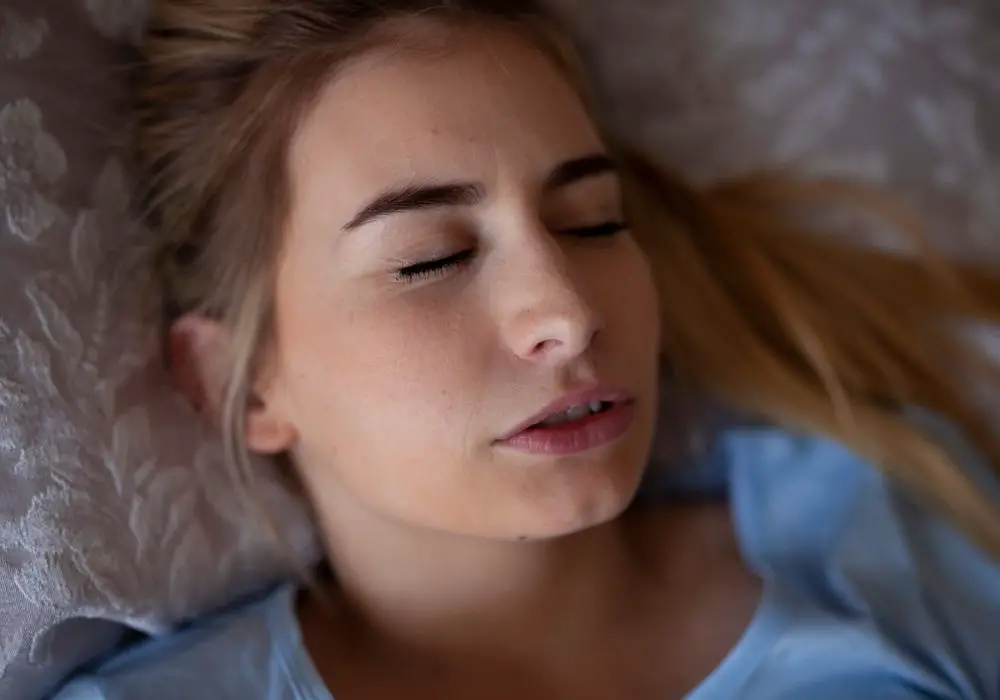
Alongside pursuing treatment, take proactive steps to shield teeth:
- Use a custom nightguard made by your dentist nightly. Have it adjusted regularly as needed.
- Request frequent enamel strengthening treatments like fluoride varnish during dental cleanings.
- Avoid chewing on pens, nails, ice, and other hard objects that could damage teeth under pressure.
- Monitor teeth closely each morning for new chips or cracks. Get repairs done immediately before they worsen.
- Use a soft bristle toothbrush and gentle brushing technique. Overbrushing erodes enamel further.
- Drink plenty of water and limit acidic foods and beverages that weaken enamel.
Staying vigilant helps minimize grinding damage until the underlying problem can be better controlled. Don’t delay on needed dental work.
Warning signs to see a dentist urgently
Seek emergency dental care for:
- Severe tooth fracture with nerve exposure
- Knocked-out tooth
- Sudden chipped teeth or dental work
- Jaw locking open or closed
- Bleeding in the mouth
- Swelling in the jaw
- Tooth pain, especially with temperature sensitivity
Seeking prompt treatment for acute dental injuries caused by bruxism improves outcomes. This helps avoid complications like infection. Catching new damage early also minimizes the eventual repair needed. Don’t hesitate to visit an emergency dentist if concerning symptoms appear suddenly.
Long term outlook for bruxism management
For many people, teeth grinding is a lifelong condition managed through protective habits and routine dental care. With proper sleep hygiene, use of nightguards, and stress reduction, the impacts of bruxism can be minimized. But staying vigilant about dental health is critical, as damage accumulates slowly over many years if left unchecked.
Focus on reducing triggers for grinding where possible, and consistently taking steps to protect teeth from harm. While not completely curable in most adults, bruxism is largely manageable with the right care. Paying attention to symptoms, addressing problems early, and working with dental providers leads to the best outcomes long term. With diligence, teeth grinding does not have to severely affect your oral health.
Common questions about dealing with bruxism
Can teeth grinding be cured completely?
For the majority of adults, bruxism cannot be eliminated entirely. The tendency to clench or grind teeth during times of stress can come and go throughout life. But with diligent management, symptoms can be greatly reduced to prevent extensive dental damage.
Does teeth grinding always require treatment?
Seeking some type of treatment is recommended, because bruxism tends to worsen gradually over time without intervention. Even mild grinding eventually erodes enamel, stresses the jaw joints, and causes similar issues. Being proactive helps curtail complications.
What are the best mouthguards for teeth grinding?
Dentist prescribed custom nightguards made from impressions of your teeth work best. They fit precisely to cushion your molars from grinding forces. Guards available at stores tend to be bulky, allow chewing motions that exacerbate problems, and fail to fully protect teeth.
Can Botox injections cure bruxism?
Botox can temporarily ease grinding for a few months by paralyzing the jaw muscles. But effects wear off, requiring repeat injections. It is not a standalone cure, but rather a short term aid used in conjunction with other therapies like nightguards and stress reduction techniques.
Does teeth grinding always happen during sleep?
Many people do grind at night during sleep phases where muscles relax. However, others notice regular daytime clenching behaviors such as when concentrating at work, doing chores, or driving. The specific triggers differ person to person. Diagnosing the prime time you clench helps guide treatment.

